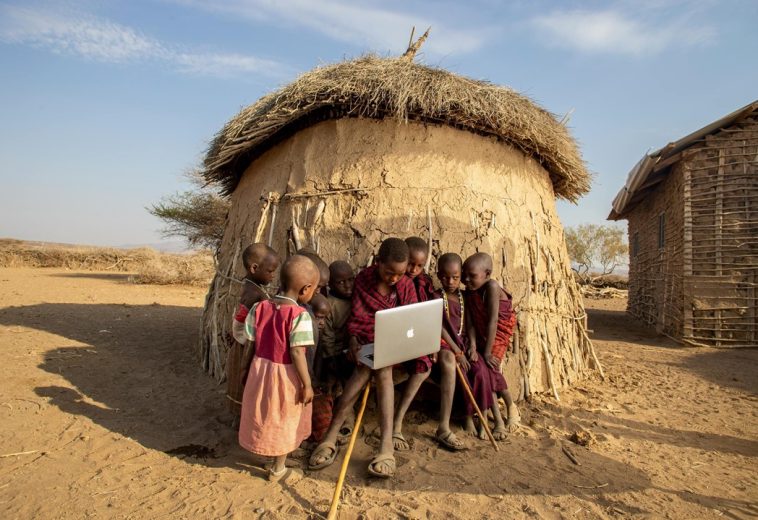For centuries, Africa has been a passive recipient of global governance, its voice often muted and its interests sidelined. The legacy of colonialism, marked by exploitation, division, and political instability, has left deep scars on the continent. This historical marginalisation has contributed to Africa’s underrepresentation in global institutions, hindering its ability to address its own challenges and contribute meaningfully to global solutions.
Despite these disadvantages, Africa faces a range of contemporary challenges with global implications. Climate change, for instance, presents a significant threat, with rising temperatures, erratic rainfall patterns, and sea-level rise impacting food security, water availability, and displacement. Furthermore, Africa must tackle poverty, inequality, and conflict, while also harnessing its demographic dividend for sustainable development.
READ ALSO: The Influence of African Institutions on Global Governance Structures
However, these challenges present substantial opportunities. Africa’s youthful population, abundant natural resources, and growing economic clout are attracting global attention. The continent is increasingly seen as a market for investment, a source of innovation, and a crucial partner in addressing global challenges. This rising influence provides Africa with a unique opportunity to shape global governance in ways that reflect its own priorities and aspirations.
Africa’s Voice in Global Governance
To effectively participate in global governance, Africa must overcome several challenges:
• Strengthening regional integration: A united Africa, speaking with a single voice, will wield greater leverage in global negotiations.
• Promoting good governance: Democratic governance, respect for human rights, and the rule of law are essential to building trust and attracting investment.
• Investing in human capital: Education, healthcare, and skills development are crucial to empowering Africa’s people and fostering economic growth.
• Harnessing technology: Embracing technology is key to enhancing Africa’s connectivity, competitiveness, and resilience.
Key Areas of African Engagement in Global Governance
Africa is increasingly active in addressing a variety of global issues, including:
Climate Change
• Vulnerability and Leadership: Africa is one of the regions most vulnerable to climate change, facing severe droughts, floods, rising sea levels, and desertification. This vulnerability has propelled African nations to become vocal leaders in global climate action.
• Advocacy for Ambitious Action: African countries consistently advocate for ambitious emission reduction targets from developed nations, recognising their historical responsibility for the current climate crisis.
• Demand for Climate Finance: African nations emphasise the need for increased financial support from developed countries to help them adapt to climate change and transition to low-carbon economies, including funding for renewable energy projects, climate-resilient infrastructure, and disaster risk reduction.
• Focus on Adaptation: Given the severe impacts already felt in Africa, the focus is on adaptation measures such as drought-resistant crops, improved water management, and early warning systems for extreme weather events.
Peace and Security
• Regional Leadership: The African Union (AU) plays a significant role in conflict prevention and resolution, deploying peacekeeping forces to hotspots across the continent.
• Focus on African Solutions: The AU champions African-led solutions to African problems, promoting dialogue, mediation, and political processes to resolve conflicts peacefully.
• Combating Terrorism: Africa is actively involved in the global fight against terrorism, with regional initiatives aimed at disrupting terrorist networks and preventing extremism.
• Emerging Security Threats: The AU is addressing new security challenges, such as cybercrime, maritime piracy, and the illicit trafficking of arms and natural resources.
Health
• Combating Infectious Diseases: Africa has been at the forefront of the global fight against infectious diseases like
HIV/AIDS, malaria, and Ebola.
• Strengthening Health Systems: African countries are investing in robust health systems to improve access to quality healthcare.
• Universal Health Coverage (UHC): Achieving UHC is a priority for many African countries, ensuring access to essential health services without financial hardship.
• Non-communicable Diseases: The continent is grappling with the growing burden of diseases like heart disease, cancer, and diabetes, and is integrating prevention and treatment into national health plans.
Trade and Investment
• Promoting Intra-African Trade: The African Continental Free Trade Area (AfCFTA) is a landmark initiative aimed at boosting intra-African trade and creating a single market for goods and services. This has the potential to enhance Africa’s economic integration and competitiveness.
• Attracting Foreign Direct Investment (FDI): African countries are actively seeking FDI to stimulate growth, create jobs, and diversify their economies.
• Negotiating Trade Agreements: African nations are increasingly involved in negotiating trade agreements with other regions and blocs, aiming to secure market access for exports and attract investment.
• Advocating for Fair Trade: Africa advocates for a more equitable international trading system, calling for the removal of trade barriers and the reduction of trade distortions.
The Future of Africa in Global Governance
The future of Africa in global governance looks promising, but it requires sustained effort and strategic engagement. Africa must continue to build its internal capacity, strengthen alliances with like-minded partners, and assert its interests on the global stage. By embracing its potential and overcoming its challenges, Africa can play a pivotal role in shaping a just, equitable, and sustainable world order.
Promising Factors
• Growing Economic and Political Influence: Africa’s expanding population and economies are increasing its global influence. This growing economic power translates into greater political leverage on the international stage.
• Technological Advancements: Increased access to technology, such as mobile phones and the internet, is empowering African citizens and fostering innovation. This can enhance Africa’s participation in global governance by facilitating communication, information sharing, and citizen engagement.
• Youthful Population: Africa’s young and dynamic population represents a significant demographic dividend. This group can drive economic growth, innovation, and social change, contributing to Africa’s rising global influence.
• Regional Integration: Progress in initiatives like the AfCFTA can strengthen Africa’s collective voice and bargaining power in global negotiations.
Africa’s role in global governance is evolving rapidly. Once marginalised, the continent is now emerging as a crucial player in addressing global challenges and shaping the future world order. By strengthening its internal capacity, embracing its potential, and advocating for its interests, Africa can make significant contributions to a more equitable and inclusive global system. The future of global governance depends on the active participation of all stakeholders, including a rising and increasingly influential Africa.




